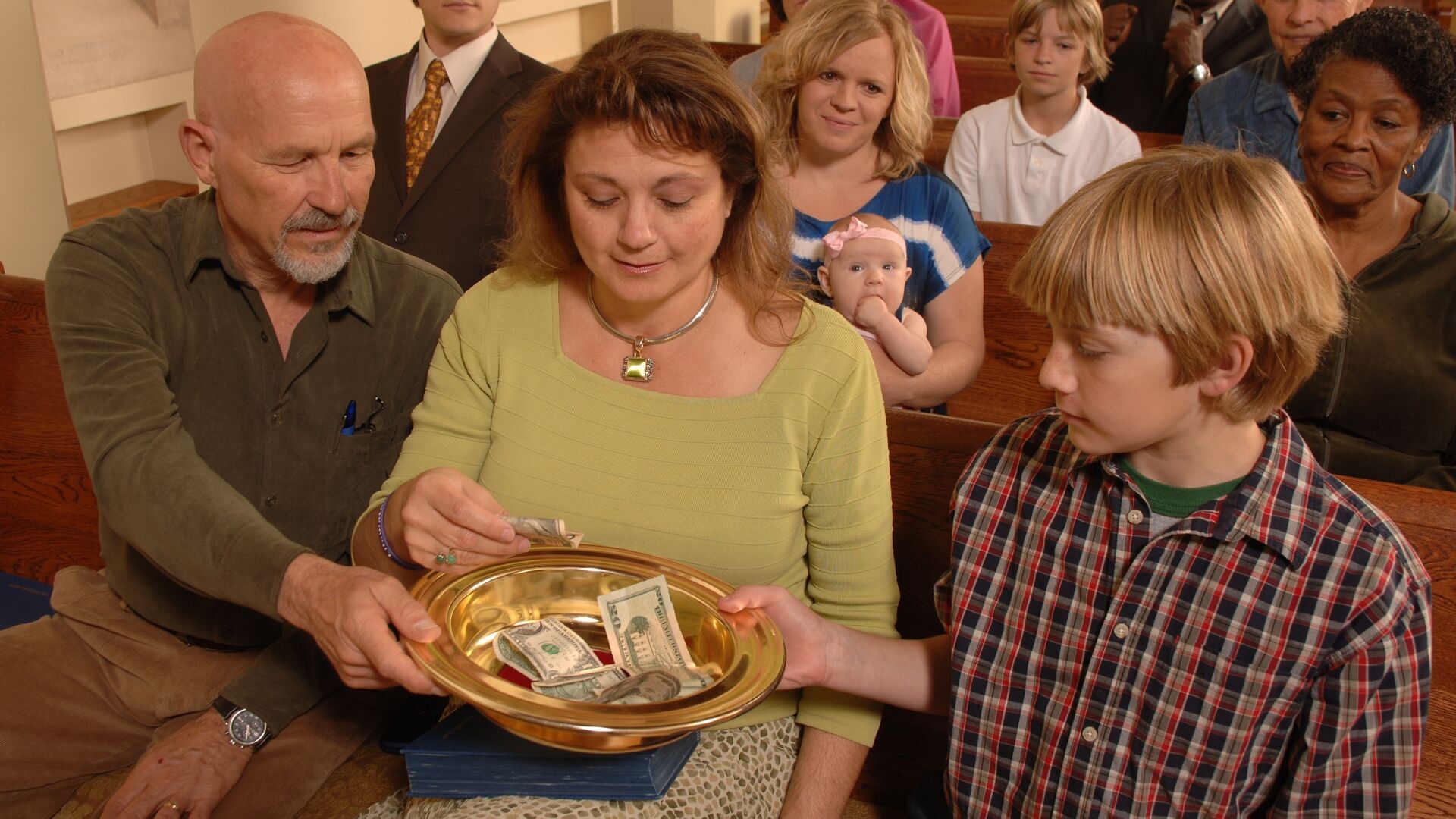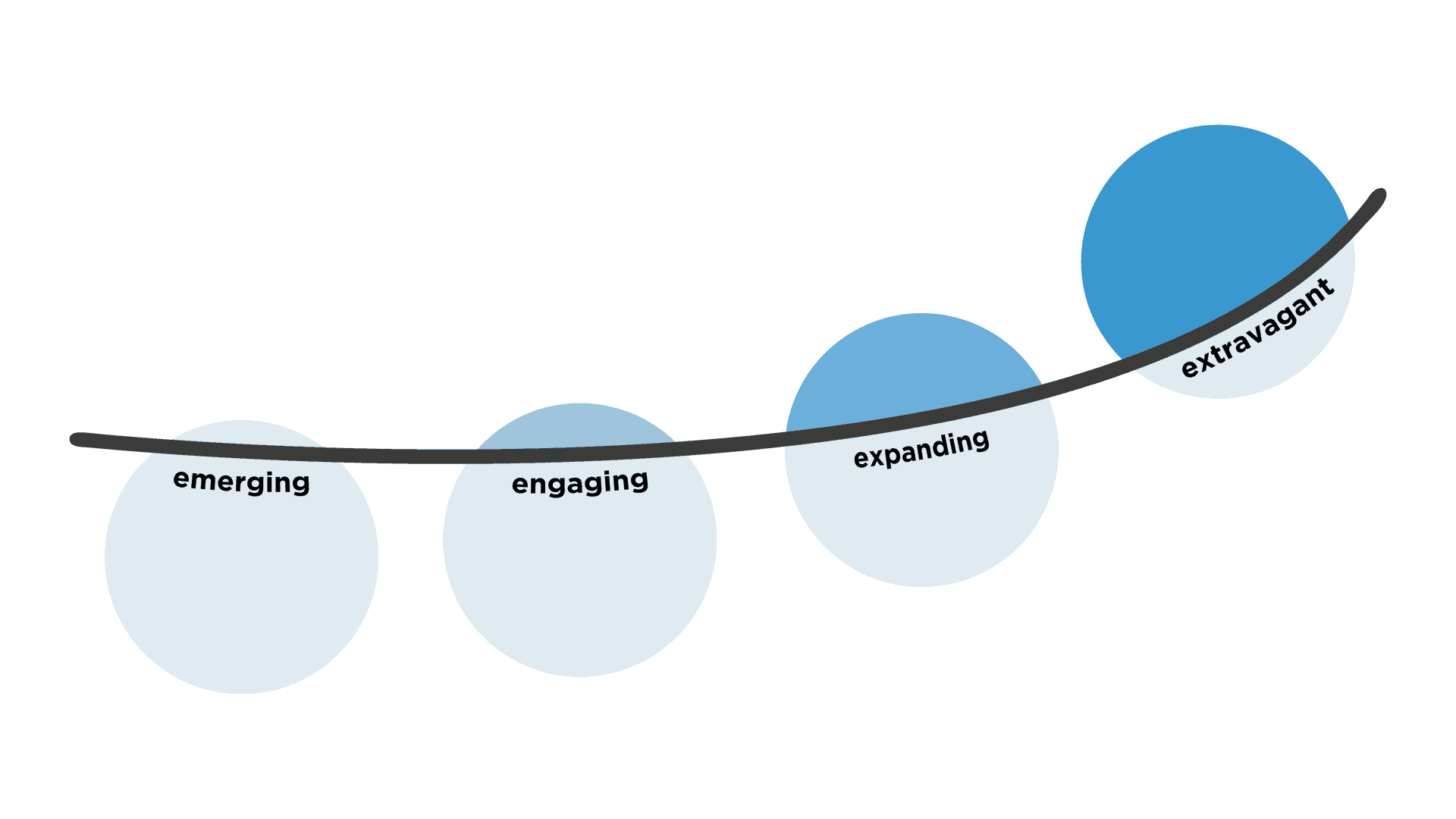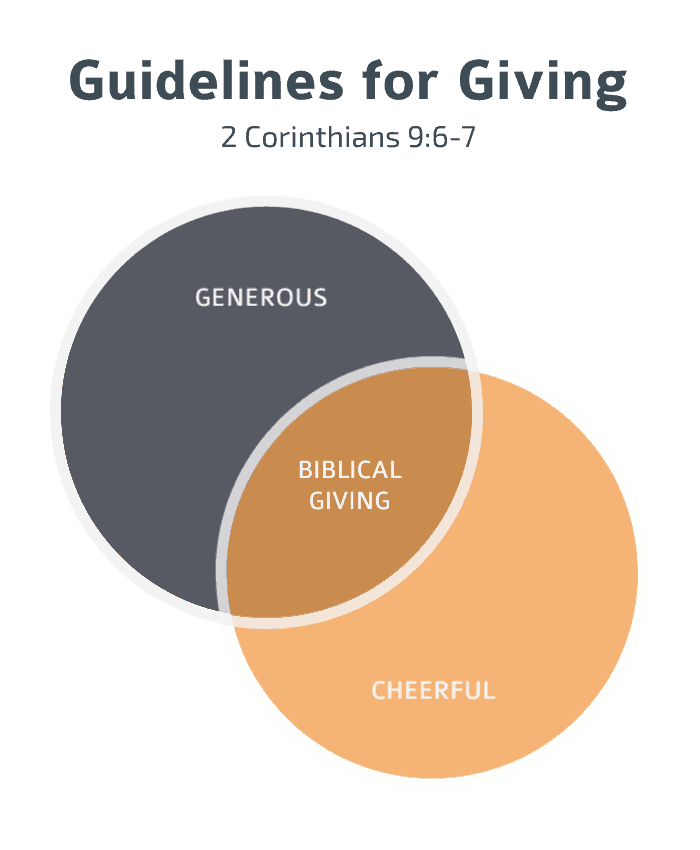What Happens When You Give (2 Corinthians 9:6-15)

Big Idea: Give generously and cheerfully because of what it will do for you and for the church.
I went to the eye doctor, and I thought it would be just another routine visit. I knew what would happen. They would do all these tests, ask me confusing questions about whether A is clearer or B, and at the end they would tell me that my eyesight was slightly worse than the year before, but that my glasses were still okay. Same script, different year.
But that’s not what happened. The ophthalmologist took a scan of the back of my eye and put it on the screen. I’d never seen a picture like this before. He was concerned because he’d spotted some scar tissue at the back of my eyeball. It wasn’t major, but it could indicate a deeper problem like diabetes. Even though my vision was fine, this minor issue could be tied to a more serious issue. If I ignored it, I’d be ignoring a much more serious issue.
That’s a pretty good picture of what we’re talking about.
On the surface, we’re going to be talking about money. In particular, we’re going to be talking about what the Bible teaches about how we should give. Now, money is a pretty big issue for us, and giving is also an important topic. You may think that we’re just talking or about money, but it actually goes a whole lot deeper.
When Paul wrote this letter, he was concerned that the Corinthians do the right thing. He wanted them to complete the collection for the Judean church. But his concern went a lot deeper. He wanted to see their hearts change at the deepest levels. He didn’t just want them to give; he wanted their hearts to change as they gave.
Tim Keller explains it this way. We all have surface idols: idolatrous areas of behavior. They’re called surface idols because we can see them. They’re things like money, spouse, children, career. But these surface idols are symptoms of deep idols. He explains:
Some people want lots of money as a way to control their world and life. Such people usually don’t spend much money and live very modestly. They keep it all safely saved and invested, so they can feel completely secure in the world. Others want money for access to social circles and to make themselves beautiful and attractive. These people do spend their money on themselves in lavish ways. Other people want money because it gives them so much power over others. In every case, money functions as an idol and yet, because of various deep idols, it results in very different patterns of behavior. (Counterfeit Gods)
Paul doesn’t want to just change our behavior. He wants to free us from our money idols. He’s using giving to do a deeper work. He doesn’t just want our behavior to change; he wants our hearts to change.
So in this passage, Paul gives us two guidelines and two benefits of giving. Let’s look at the guidelines, and then let’s look at the benefits.
Guidelines
Okay, here are the guidelines in this passage. They aren’t complicated.
Give Generously
Paul is clear in this passage. We need to give generously. In verse 6 he says, “The point is this: whoever sows sparingly will also reap sparingly, and whoever sows bountifully will also reap bountifully.” He uses a farming metaphor.
You can sow in a tightfisted way. This doesn’t make sense, though, when you think about it. If you sow sparingly, you won’t get much of a result. It doesn’t make sense to try to save on seeds when each seed could produce anywhere from 30 to 100 times the amount of seed that you sow.
The alternative Paul gives is to “sow bountifully.” Paul wants them to give in a generous, open-handed way that will lead to a bountiful harvest.
We’re going to return to this theme of sowing and reaping in a minute, but Paul’s message is clear: don’t give sparingly. Become someone who gives as generously as possible.
I love how one church pictures it. We’re all on the spectrum between an emerging giver and an extravagant giver. I don’t know where you are on this spectrum, but what Paul tells us is simple: keep moving to the right. Make it your aim to become a more generous giver.

But here’s the second guideline that Paul gives us.
Give Cheerfully
“Each one must give as he has decided in his heart, not reluctantly or under compulsion, for God loves a cheerful giver” (2 Corinthians 9:7).
You would think that it’s enough to give generously, but it’s not. Paul also wants us to give cheerfully as well. Everyone should give the amount they’ve decided in their own heart. What you give is something you need to work out with the Holy Spirit. It’s not to be a public decision, nor should it be flaunted.
However much you decide to give, two things should not be true about your motives:
- It shouldn’t be motivated by sad feelings. The word “reluctantly” refers to sad or distressed giving, in contrast to happy giving. Whatever you give should not be motivated by negative feelings.
- It shouldn’t be motivated by external pressure. We’ve been there: we know what it’s like to have someone put pressure on us to give.
God doesn’t want you to give out of guilt or pressure. How should we give then? Deuteronomy 15:10 says, “You shall give to him freely, and your heart shall not be grudging when you give to him, because for this the LORD your God will bless you in all your work and in all that you undertake.” Here, Paul says, “God loves a cheerful giver.”
Paul teaches us that there are two ways to fail at giving. If you give generously but not joyfully, you’ve given the wrong way. If you’re joyful but not generous, you’ve failed. God wants us to give at the intersection of generosity and joy. He wants your generosity, and he wants your joy. He wants you to be cheerful and he wants you to be obedient.

Randy Alcorn says:
I have found that cheerful givers love God and love him more deeply each time they give. To me, one of the few experiences comparable to the joy of leading someone to Christ is the joy of making wise and generous choices with my money and possessions. Both are supreme acts of worship. Both are exhilarating. Both are what we were made for.
Have you discovered this? If you haven’t, you’re missing out. Giving at the intersection of generosity and cheerfulness is one of the greatest privileges of life, and it comes with some amazing benefits.
Benefits
I think more of us would give if we knew how many benefits we could enjoy when we give at the intersection of generosity and cheerfulness.
So what are these benefits? There are two main benefits that he mentions.
God will give you what you need to continue to be generous (9:8-11)
Here’s the amazing thing. When you give, you benefit. “God is no one’s debtor,” says D.A Carson. “He bestows all kinds of heart gifts on people who give.”
God blesses generous givers. Verses 8 to 11 is all about that. The Bible repeatedly says that God richly blesses extravagant givers. In particular: “God is able to make all grace abound to you.” God has the ability to lavish all kinds of grace on you. God is able to meet all of our needs. We are personally connected to the God who is able to lavish us with everything we need.
Why would God do this? Verses 10 and 11 tell us:
He who supplies seed to the sower and bread for food will supply and multiply your seed for sowing and increase the harvest of your righteousness. You will be enriched in every way to be generous in every way, which through us will produce thanksgiving to God. (2 Corinthians 9:10-11)
God will give you what you need so that you can continue to be generous. I’ve noticed this: God gives generous people more so that they can keep giving more. God gives generous churches more so that they can continue to be more.
Combine this with what I said before — that giving is exhilarating — and you have an amazing way to live. It’s a great cycle: give more, and then get more so that you can keep giving more and experience even more joy. God will give you what you need to continue to be generous.
But there’s another benefit.
God will use your gifts to bless others (9:12-15)
When you give, others benefit. Paul mentions three specific ways that others will benefit:
- It will supply the needs of the saints (9:12). The poor will be fed. Churches will be planted. Missionaries will be supported. The gospel will be advanced.
- It will cause others to thank God and give glory to him (9:12-13). When you give, you will be an answer to someone else’s prayer. When God uses you to meet their needs, they will thank and glorify God as a result of your gift.
- It will bring you closer to others (9:14). They will long for and pray for you because of your generosity to them.
The benefits of giving are clear.
Individuals, families, and churches can establish beachheads of strategic lifestyle, disciplined spending, and generous, globally minded giving. By infectious example, we can claim more territory for Christ than we ever dreamed possible.
A revival of lavish giving and strategic living is a revival of grace empowered by God. As the body of Christ gets serious about learning and living out God’s instructions concerning money and possessions, Christ’s cause will be furthered and his person exalted. (Randy Alcorn)
Not only that, but you will be changed. God will do a work in your heart as you learn to give this way. Give generously and cheerfully because of what it will do for you and for the church.
It’s interesting how Paul concludes this section. “Thanks be to God for his inexpressible gift!” (2 Corinthians 9:15)
What is Paul referring to? Maybe he’s referring to the glorious picture of Christians giving to help others believers. Maybe he’s praising God for his work of turning us into generous givers. But underlying that gift is an even greater gift: the gift of a generous Savior who gave his life for us.
Paul doesn’t end with our generosity. He ends with the generosity of Jesus. His generosity transforms us so that we become a generous people.
I want you to experience this! I want you to become a generous, cheerful giver so that you’re blessed and so that you’re a blessing to others. I want you to experience the exhilaration of cheerful generosity.
If you have Jesus, you don’t need anything more to start. When Hudson Taylor opened a bank account for the China Inland Mission, the application form asked for an asset list. Taylor wrote the following as the sum total of his assets: “Ten pounds and all the promises of God.”
You have everything you need to be a generous, cheerful giver. So let’s get started.





